Tribal elders enjoy an afternoon of games, prizes and food on the Fort Berthold Reservation

On a stop between Wounded Knee, S.D. and Pine Ridge, S.D, Oomaka Tokatakiya, Future Generations Riders make the final leg of a 300-mile journey on Dec. 29. The ride commemorates the Wounded Knee Massacre of Dec. 29, 1890. Photo Credit/Jodi Rave Spotted Bear
Most people familiar with American Indian history know about the Wounded Knee Massacre of Dec. 29, 1890. Now, 133 years later, the Lakota people remember that tragic event in U.S. history with a 300-mile horseback ride in the dead of winter.
On Thursday, Dec, 29, the Oomaka Toatakiya, Future Generation Riders, rode into the town center of Pine Ridge, S.D. The weather was a mild 41 degrees considering it could have been a lot colder for the end of December. In 1890, the temperatures froze the massacred bodies of Hunkpapa and Miniconjou Lakota. They were gunned down with bullets and canons at the hands of some 500 merciless Seventh Cavalry soldiers. The Dakota and Lakota had been seeking refuge with Oglala allies on the Pine Ridge Reservation when the cavalry forced them into a camp Dec. 28 and opened fire on them the next day.
Horseback riders have been commemorating the event since 1986. The journey begins on the Standing Rock Reservation, continues into the Cheyenne River Reservation, and culminates with hundreds of riders circling up with their horses at the Wounded Knee Massacre site. Riders then continue into Pine Ridge Agency.
While the backstory pays tribute to those who died, the story today recognizes the future of Native people rests with the Oomaka Tokatakiya, those generations born more than a century after the massacre near Wounded Knee Creek.
Photos by Jodi Rave Spotted Bear
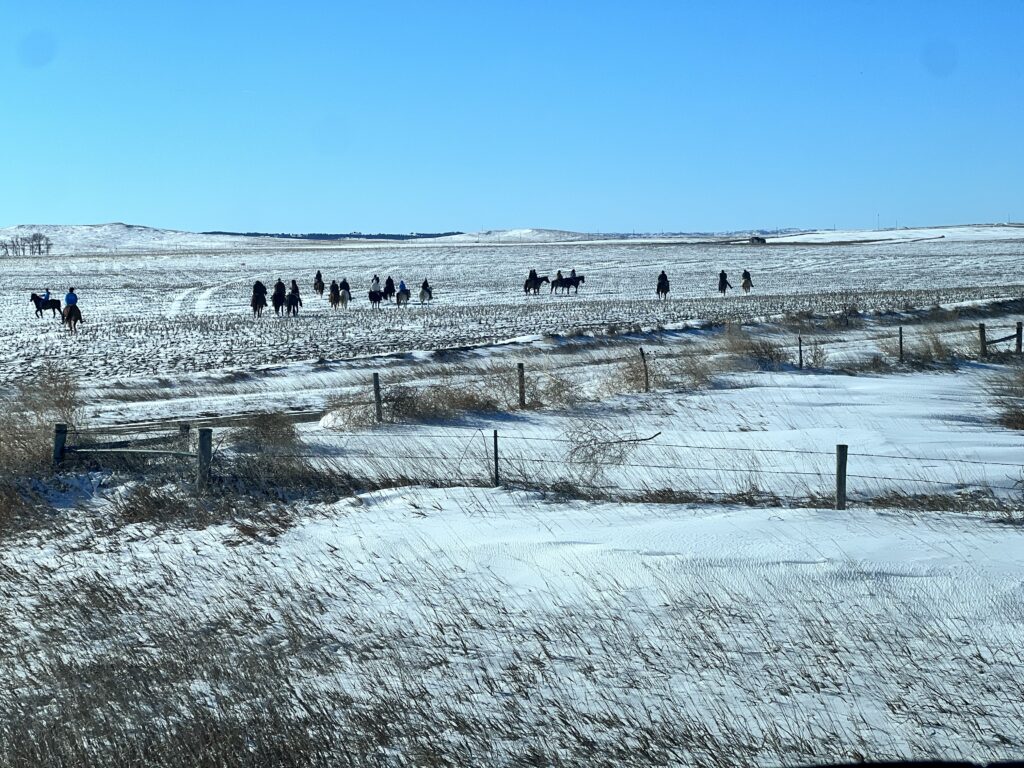
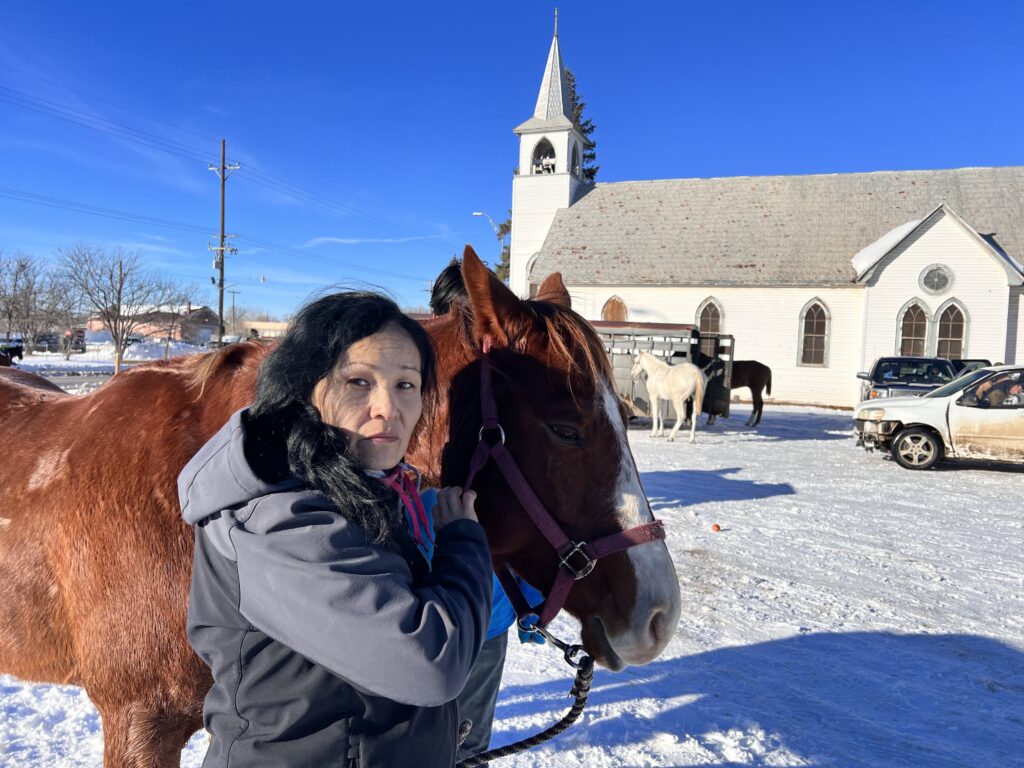
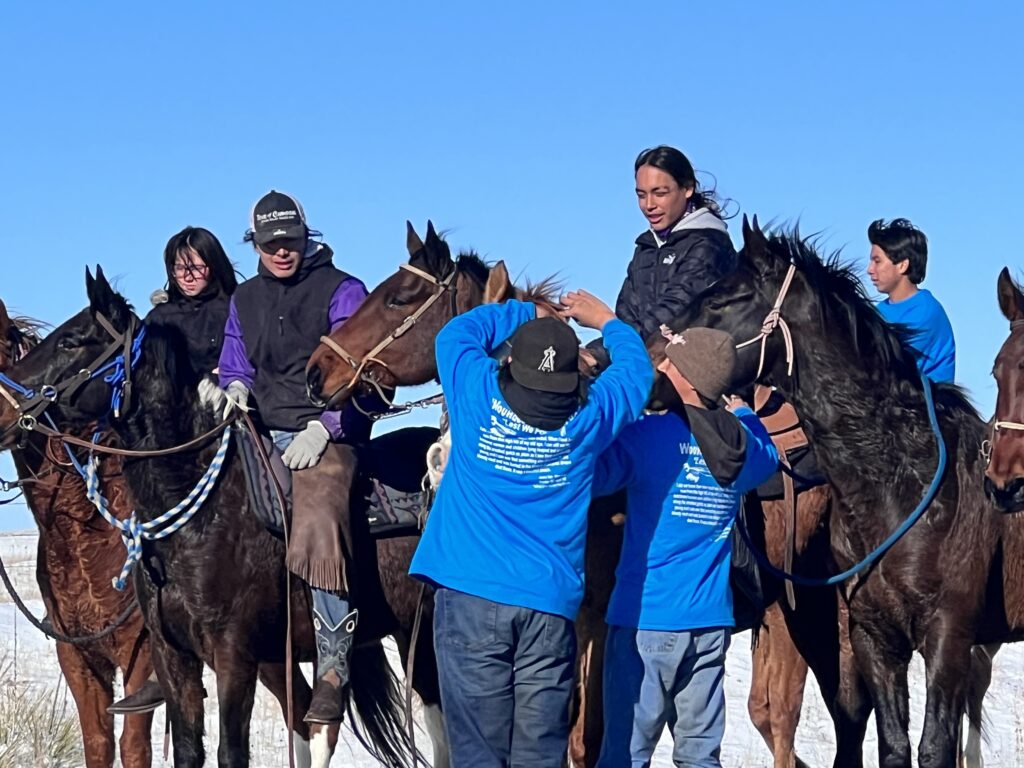
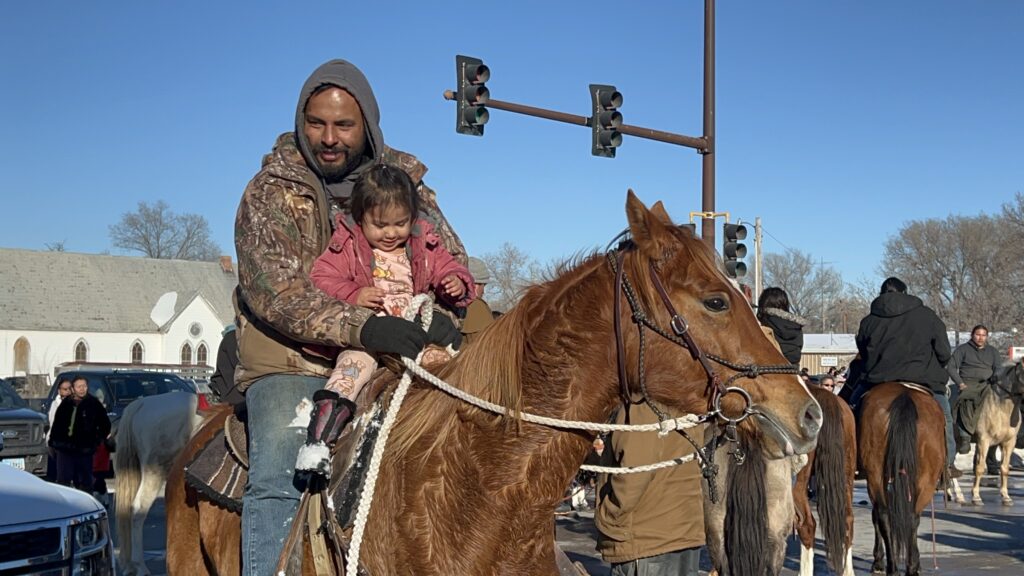
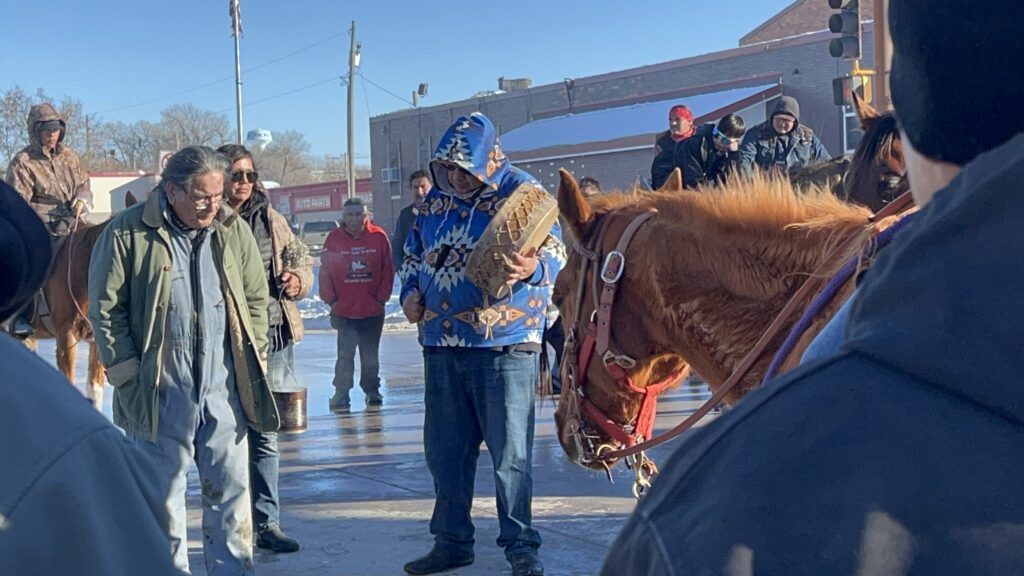
Jodi Rave Spotted Bear (Mandan, Hidatsa and Arikara Nation)
Founder & Editor in Chief
Location: Twin Buttes, North Dakota
Spoken Languages: English
Topic Expertise: Federal trust relationship with American Indians; Indigenous issues ranging from spirituality and environment to education and land rights
See the journalist page© Buffalo's Fire. All rights reserved.
This article is not included in our Story Share & Care selection.The content may only be reproduced with permission from the Indigenous Media Freedom Alliance. Please see our content sharing guidelines.
This article was produced for ProPublica’s Local Reporting Network in partnership with Honolulu Civil Beat
ProPublica
Inspired by her grandparents, Tonah Fishinghawk-Chavez proves that caring for the community is an action, not just a word
Police and family looking for Angel Mendez and Zayne LaFountain
We paused some services to investigate and restore systems and we’re grateful for your patience
Through self-determination and support, Native actress rebounds from ICE confrontation







